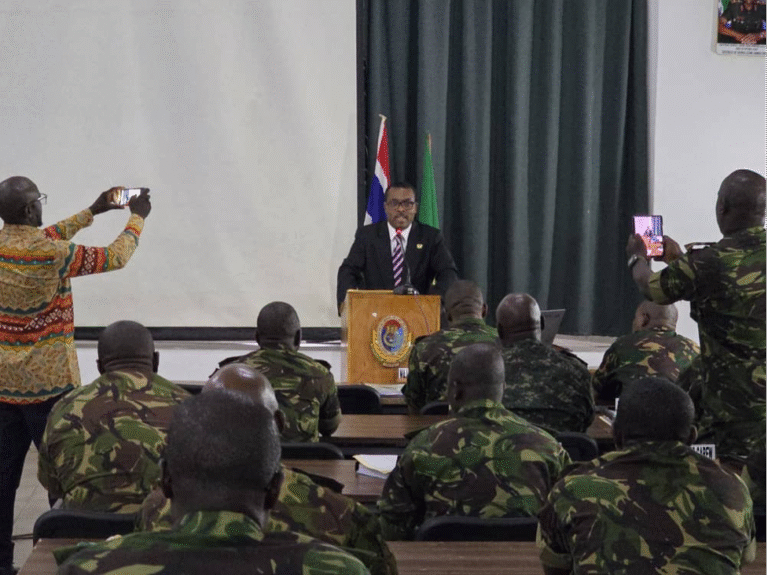By Saidu Dumbuya
Sierra Leone is currently hosting the 12th Meeting of the College of Supervisors for Non-Bank Financial Institutions (CSNBFI) within the West Africa Monetary Zone (WAMZ). The event is being held at the Conference Hall of the Bank Complex in Kingtom, in the western part of Freetown.
Welcoming participants from Guinea, The Gambia, Ghana, and Liberia, the Director General of the West African Monetary Institute (WAMI), Dr. Abdulsalam Sikiru Abidemi, emphasized the importance of remaining vigilant against risks that could threaten financial stability. He cited currency volatility and geopolitical disruptions as key concerns.
Dr. Abidemi also highlighted the transformative potential of technological advancements, particularly in Artificial Intelligence, which he said offer significant opportunities to improve service delivery and efficiency within the financial system.
Delivering the keynote address on behalf of the Governor of the Bank of Sierra Leone, Deputy Governor Alhaji Yayah Sesay underscored the critical role non-bank financial institutions play in the region. He noted that these institutions serve as vital bridges between underserved populations and the formal financial sector, providing essential services to households, smallholder farmers, micro and small enterprises, and marginalized communities—many of whom remain outside traditional banking systems.
He further stated that in Sierra Leone, as in much of the region, non-bank financial institutions are central to national strategies aimed at expanding access to finance and promoting rural development. These institutions, he added, act as conduits for remittances, provide microloans, and facilitate community savings—all of which contribute to economic empowerment and poverty reduction.
However, Deputy Governor Sesay also cautioned that the expansion of the sector brings its own set of challenges, including consumer protection concerns, governance issues, and risks to the integrity of the financial system—especially in light of the evolving nature of financial crimes and technological disruptions.
He described the 12th Meeting not just as a strategic engagement, but as a collaborative forum for aligning mandates and strengthening supervisory capabilities. He urged participants to build on progress made under previous action plans and critically assess the effectiveness of their supervisory frameworks. More importantly, he stressed the need to adapt to the emerging realities and dynamics of the sector.
In his opening remarks, Chairman of CSNBFI and Director of Inclusive Financial Institutions Supervision at the Central Bank of Guinea, Mr. Ibrahim Kanda Diallo, emphasized the importance of the meeting for regional cooperation and development.
Deputy Director and Head of the Other Financial Institutions Supervision Department at the Bank of Sierra Leone, Madam Esther Johnson, noted that the 12th Meeting brings together regulators from across the West Africa Monetary Zone. She highlighted the critical role these supervisors play in overseeing a wide range of non-bank financial entities—including mobile money operators, microfinance institutions, foreign exchange bureaus, and community banks.
The meeting will continue through Friday, 18th April, 2025.







